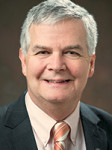Who Will Care For You?
The state’s caregiver workforce faces a crisis of low wages and high turnover.
We live our lives with much uncertainty. We can never be sure our plans will work out perfectly, and we may have to adjust due to unforeseen events. It could be weather changes, mechanical problems, an illness or accident that may change our entire life. But, even with uncertainty hanging over us like a cloud, we plan and move ahead.
Most of the time, plans are kept and we live another day healthy and free of worry. If things go as we plan, we will live a long and healthy life. But even as we approach our later years we won’t be able to do the things we once did for ourselves and we’ll need help. Many of us see this with our own parents or elderly neighbors; they need caregivers. It could be us or the people we care about; it could be at our homes or at a care facility; no matter who or where, professional caregivers are critical for our communities.
Less funding and more complicated systems have forced many who would have otherwise considered a healthcare position, caring for the elderly or clients with disabilities, to reconsider purely for financial reasons. When such highly skilled people are able to find work in other professions that pay livable wages with benefits who can blame them for looking out for their own families’ needs?
Governor Tony Evers recognized the shortage of professional caregivers as a crisis, particularly as we enter an era of increased need brought on by the aging baby boomer generation. This awareness resulted in Governor Evers creating the Task Force on Caregiving in 2019, which was asked, “to analyze strategies to attract and retain a strong direct care workforce and to assist families providing caregiving supports and services.”
After months of meetings with stakeholders throughout Wisconsin, the Task Force presented their findings and recommendations in the “Wisconsin Caregivers in Crisis” report to Governor Evers in September. During the course of their meetings, the Task Force found the caregiver workforce is “in a state of perpetual turnover” due to low-wages, despite the many open positions that are available.
When the turnover of professional direct care workers is so dramatic, it becomes a truly dangerous situation for many clients who need and deserve consistency in their care. When speaking with constituents with special needs, a top concern is that they are continuously training new caregivers.
While reading the report, the proposal that really caught my eye – which could be easily implemented to help Wisconsinites – is Medicaid Expansion. Over the course of the legislative session, we’ve already heard a lot about the advantages of expanding Medicaid. Now we know, Medicaid expansion would help solve some of the big problems our state’s caregiver workforce is facing. Specifically, the report concluded caregivers could earn more money and “allow an additional 60% of caregivers to obtain health insurance,” all the while improving caregiver retention.
This session, I’ve heard from countless constituents and healthcare professionals urging the Legislature to expand Medicaid. We can bring tax dollars back to our state from the federal government, allow 80,000 more people access to health care and improve our caregiver workforce. Twenty-nine states have already expanded Medicaid – it’s time Wisconsin does too.
Wisconsin State Senator Jeff Smith represents Wisconsin’s 31st Senate District.
Op-Ed
-
Wisconsin Candidates Decry Money in Politics, Plan to Raise Tons of It
 Dec 15th, 2025 by Ruth Conniff
Dec 15th, 2025 by Ruth Conniff
-
Trump Left Contraceptives to Rot; Women Pay the Price
 Dec 8th, 2025 by Dr. Shefaali Sharma
Dec 8th, 2025 by Dr. Shefaali Sharma
-
Why the Common Council’s Amended Budget is Good Policy for Milwaukee
 Nov 20th, 2025 by Alds. Marina Dimitrijevic and Russell W. Stamper, II
Nov 20th, 2025 by Alds. Marina Dimitrijevic and Russell W. Stamper, II






















